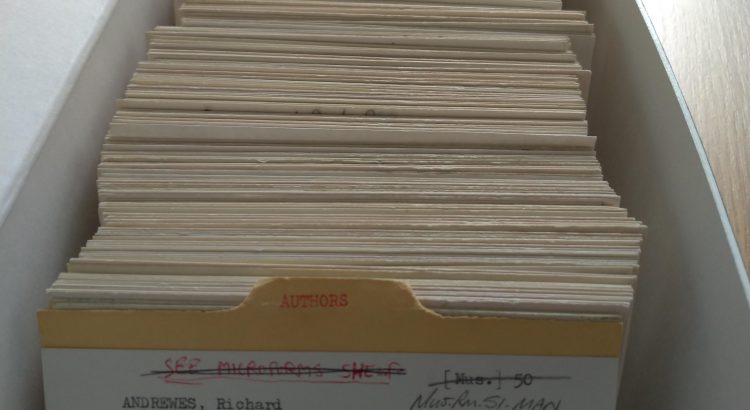In our previous blog of this series, we gave you a general overview of the Music Retoconversion Project that the National Library is currently working on. Here we will discuss some of the different cards we’ve been converting and the challenges these have posed.
The catalogues contain two types of cards: regular bibliographic cards with all the information about the item, such as composer, title, publisher; and so-called cross-reference cards or ‘See Cards’, which are filed amongst the full cards in the card catalogues and act as pointers towards the correct card. So, for example, someone could look under M for Magical, and find the ‘See Card’ (left) that directs towards W for Webber to find the full card (right) for the song ‘Magical Mr Mistoffelees’, from Andrew Lloyd Webber’s musical, ‘Cats’:
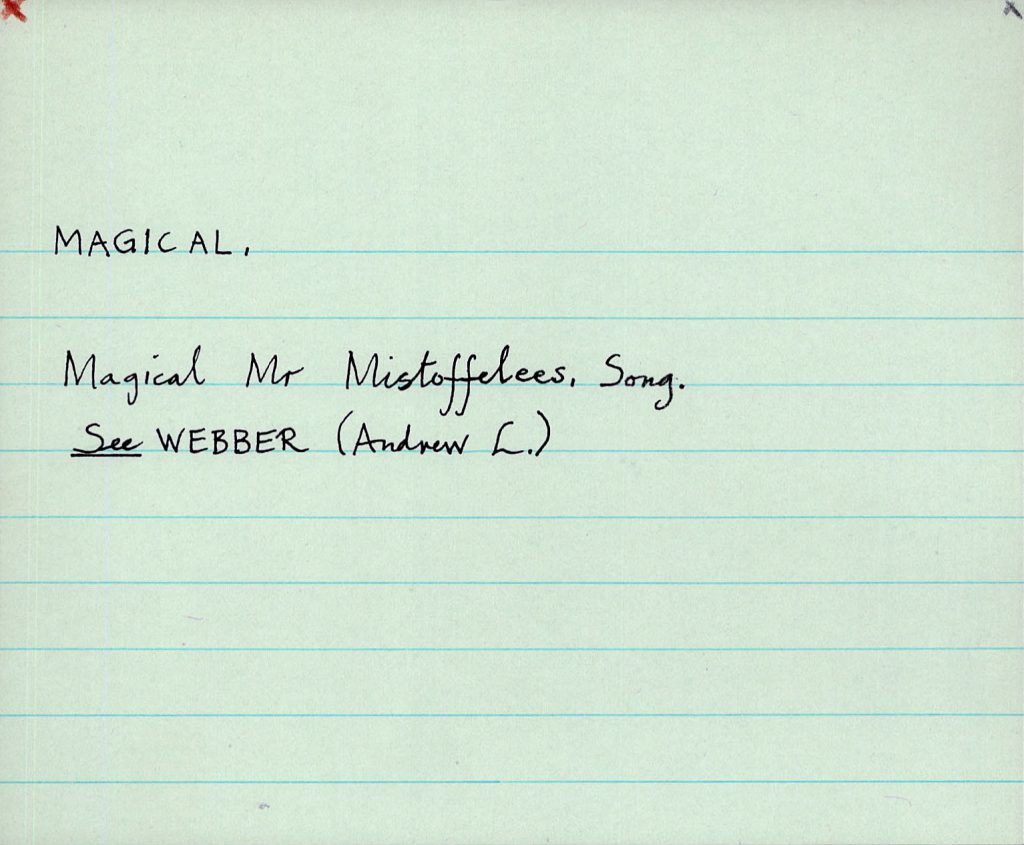
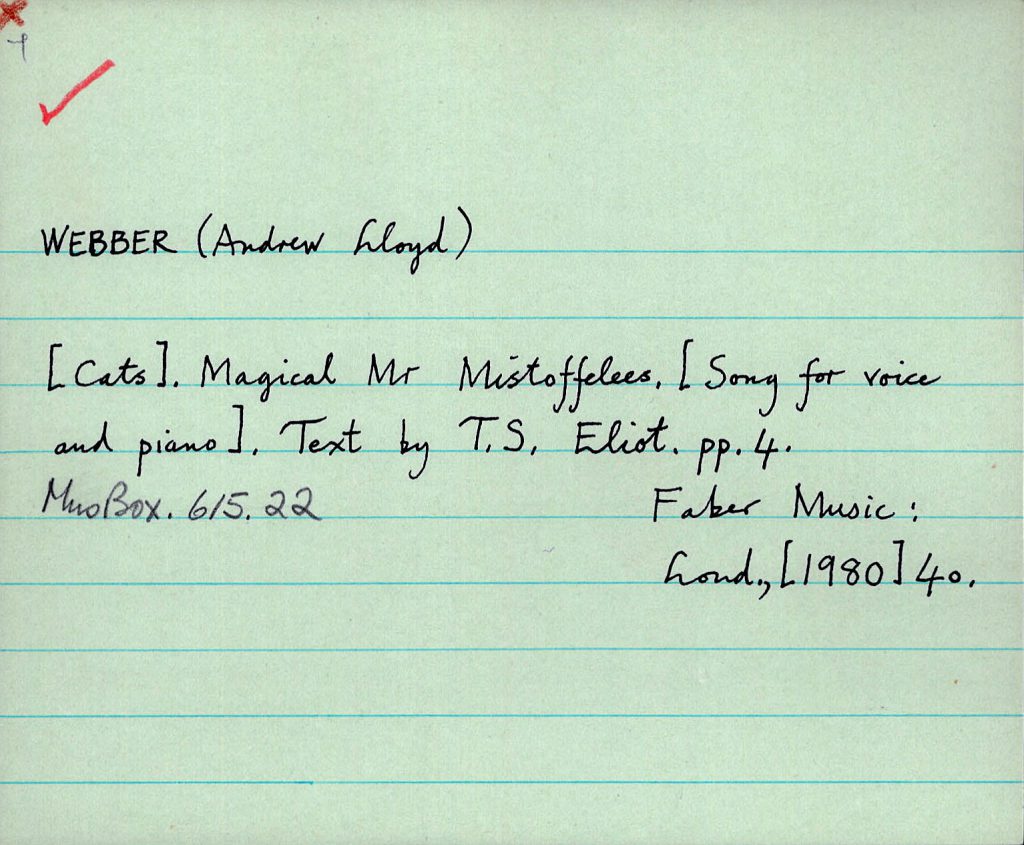
There is also a wealth of finding aids that do not contain full bibliographic information but will still help users find the material they are looking for. The ‘Uncatalogued Guardbooks’, for instance, are long lists of sometimes over 30 items per page. These lists contain briefer bibliographic descriptions than full catalogue entries, and required extra considerations when transferring the information on the card into the database. There were limits to how many separate pieces of information could be processed by the computer system for each image, and the database itself needed to stay consistent overall. The solution was to create separate title blocks for each item on the page, but to limit the number of fields that each title block contained. For this reason, a lot of the information that would have been split in other catalogues was grouped together in one field for the Uncatalogued Guardbooks. For example, there is no separate field for series statements; these were kept part of the main title.
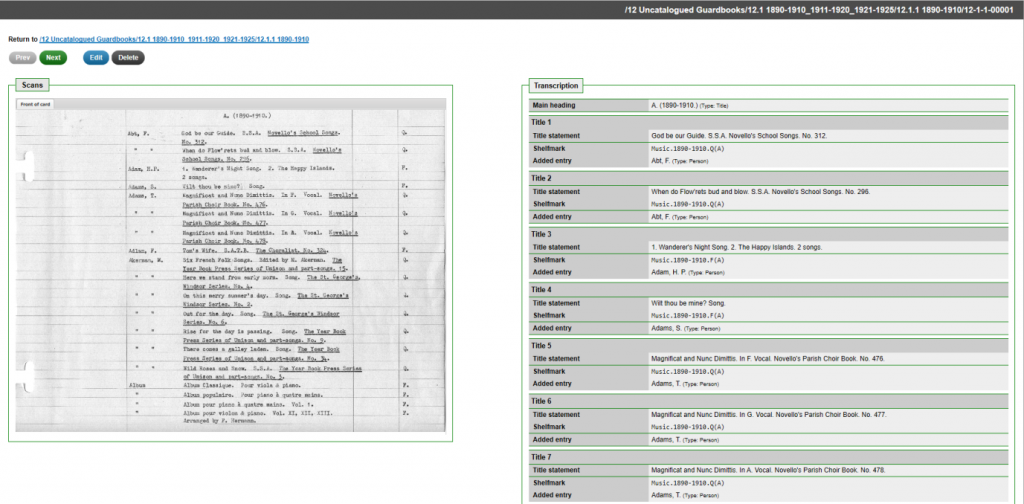
The Uncatalogued Guardbooks will be available in the catalogue, but there are other finding aids that will not be displayed in the online catalogue, but will help the librarians to synchronise the records more thoroughly down the line. It is therefore useful to have their information in a digital format as well, but this did mean that different instructions had to be written for our outsourced transcribing team for each catalogue or finding aid. Below you can see some of the different kinds of cards that the project has dealt with:
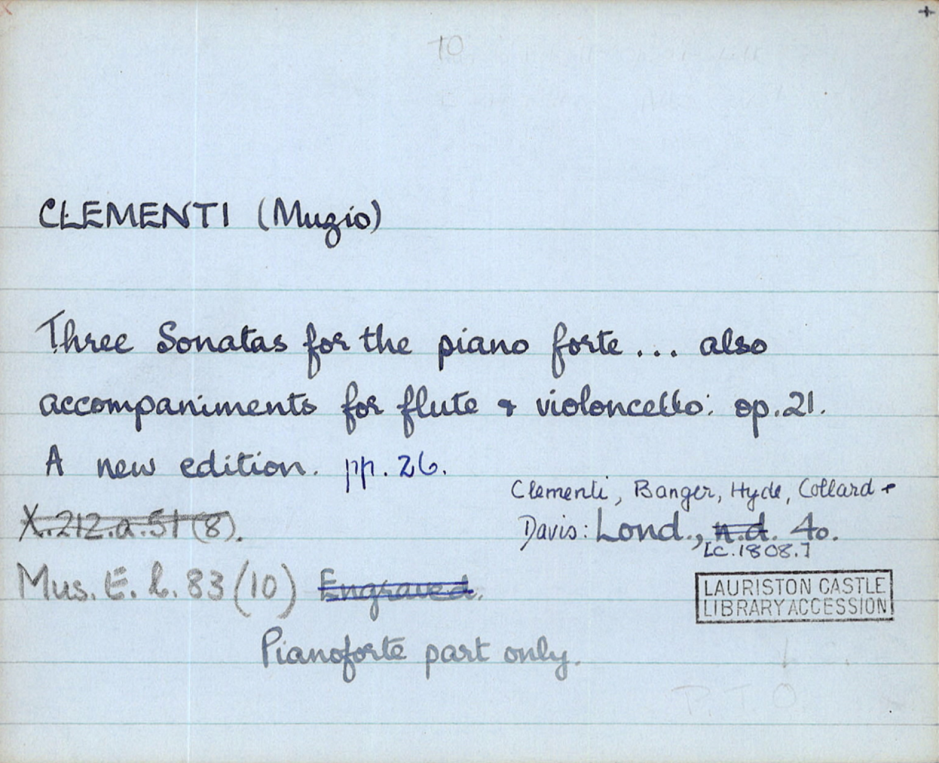
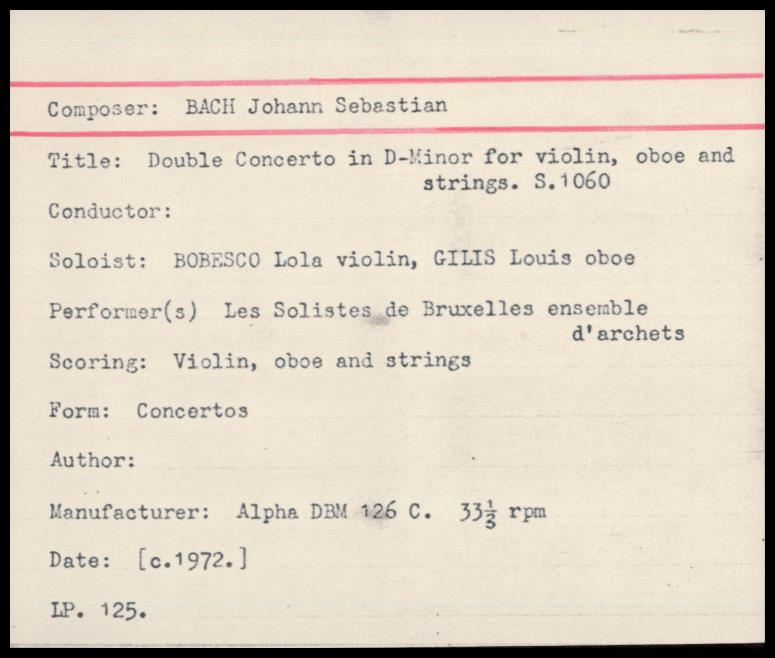
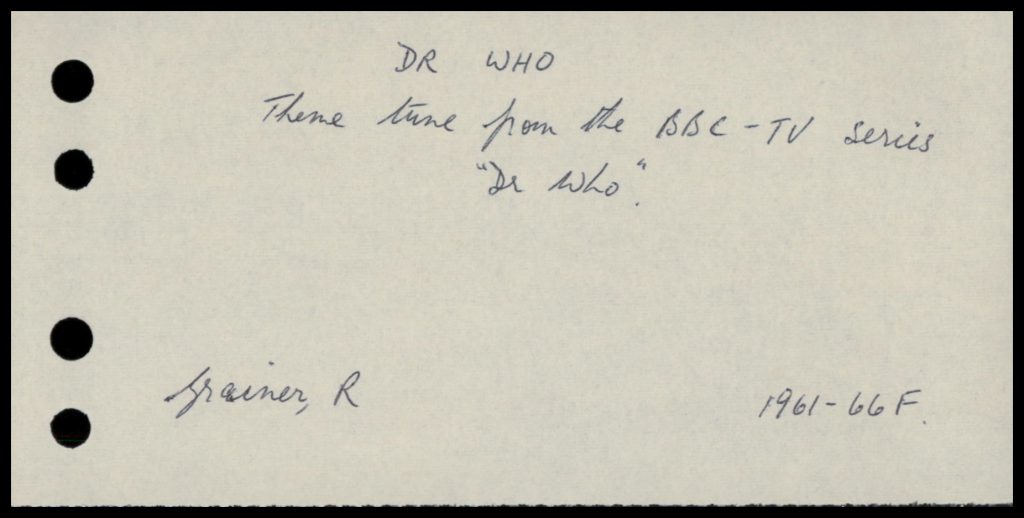
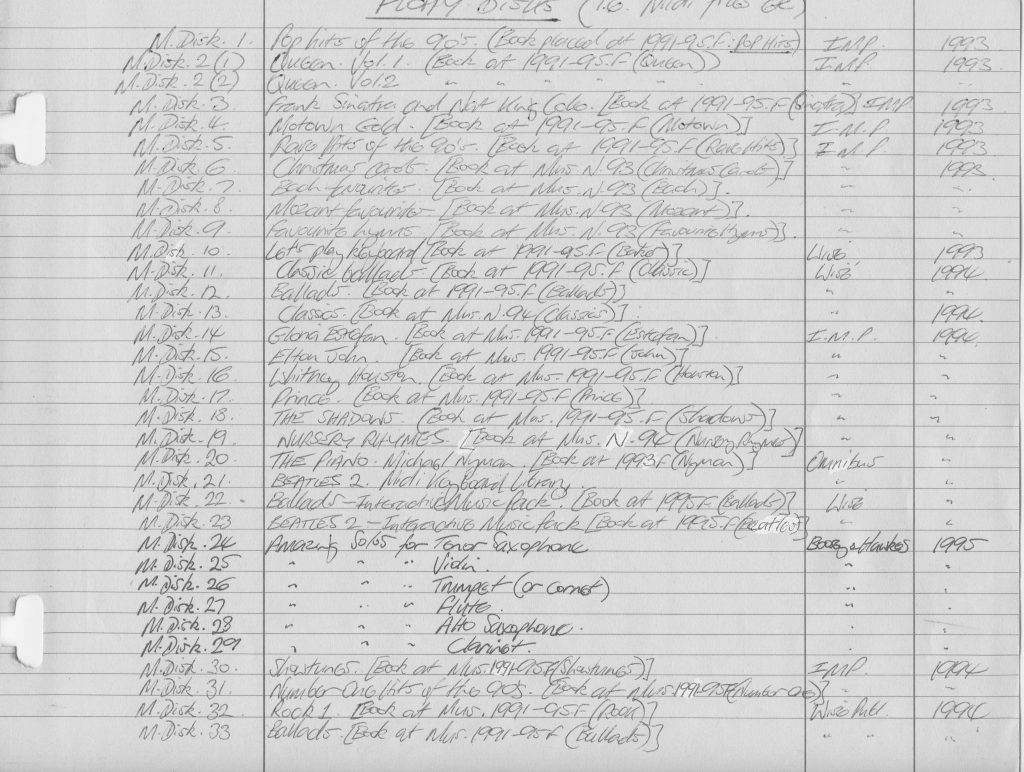
Almost 400,000 cards in total are being processed, and there are limits to how much editing can be completed in the project’s short timeframe. We call this kind of project a “Retroconversion project”, and the data is input into the online catalogue as it appears on the card. This means that, at least initially, the records in the online catalogue will be briefer than standard catalogue records and there will be some inconsistences due to the wide range of cataloguing standards that have been used through the centuries. Since the project is not updating the information on the cards, for now the online catalogue will contain records with all the different standards outlined above and in the previous blog. However, we will continue to tidy the public online catalogue as we go along so if you see anything strange or just want further information, please let us know. You can email us at music@nls.uk and we are always happy to hear from you.
This is the second in a series of three articles about the Music Retroconversion Project at the National Library of Scotland. Please join us next week for our final instalment where we’ll talk about the benefits this project will provide to the National Library and, most importantly, to our readers.
